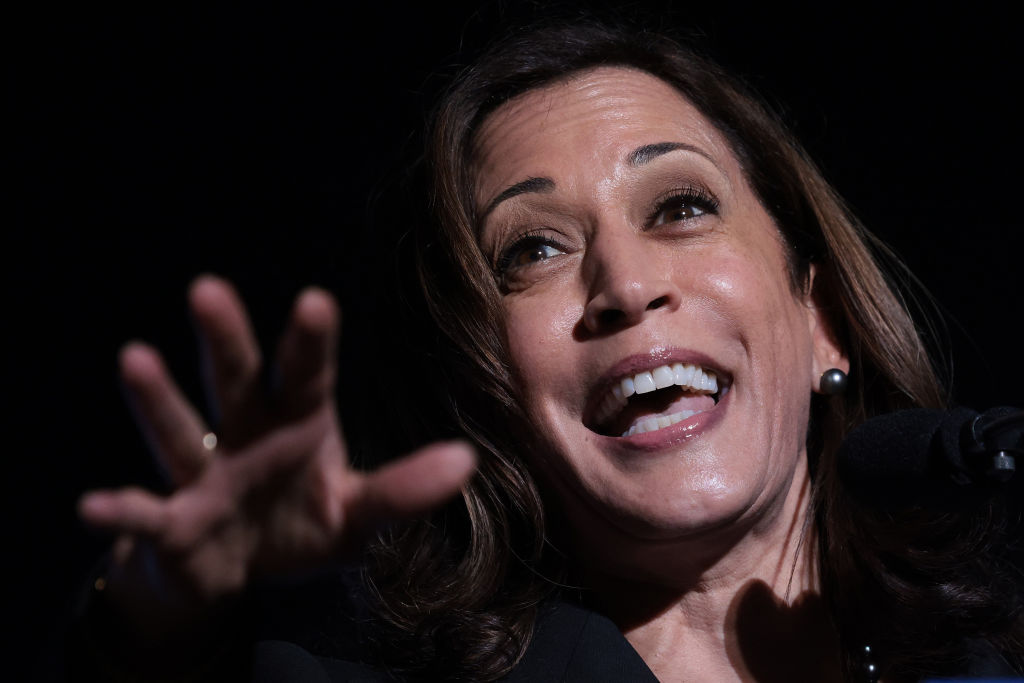Rising to the China challenge
This evening, Joe Biden and Xi Jinping will meet virtually in a bid to reduce rising tensions between the US and China. The remote tête-à-tête comes at an important time, after a Chinese Communist Party declaration that marks Xi as among the greatest figures in its history, with the outlines of the Biden administration’s China policy now visible, and with no shortage of contentious issues for the two leaders to discuss.
Foremost among these issues is Taiwan, the pinch point where Chinese ambitions and the West’s defense commitments are most likely to collide.
Ahead of the meeting, I spoke to Elbridge Colby, architect of the 2018 National Defense Strategy, co-founder of the Marathon Initiative and author of Strategy of Denial, which explains in unflinching terms why America needs to take the possibility of a confrontation with China more seriously. Colby’s book has made waves in Washington, and is a compelling, realist look at the most important geopolitical question of the 21st century.
I started by asking about Colby about strategic ambiguity, the longstanding US policy on Taiwan, according to which America is deliberately vague about whether or not it would come to the island’s defense in the event of Chinese attack. On several occasions, Biden has made less-than-ambiguous pledges of American support before being corrected by his own White House. Some have speculated the apparent gaffes are in fact deliberate indicators of a change in American policy. Here’s what Colby had to say about that and more:
I’m skeptical that it’s part of an effort to chip away at strategic ambiguity. I don’t know whether they are deliberately doing it or not, but I actually think that the Biden administration has probably gone further than any administration before in signaling support for Taiwan. They’ve repeatedly reiterated a “rock solid” commitment to Taiwan. And that’s a pretty strong statement. With these things, it’s a mosaic of indicators. And that mosaic is a pretty strong signal that we’re not going to sit by while China gobbles up Taiwan.
On the idea that Taiwan isn’t worth defending:
The exact same logic would obtain to the Philippines and ultimately South Korea and Japan. So it’s a matter of where do we draw the line. And my argument is that we should draw the line around places we are already committed to that make sense to defend, which in Asia basically means islands and peninsulas. If we give up Taiwan, what are people going to think in the Philippines or in Seoul, let alone Hanoi and Jakarta? It wouldn’t be irrational for them to think that America would come up with some excuse as to why they wouldn’t defend them.
On the Biden administration’s China policy so far, the good, the bad and the ugly:
The good is the focus on China. The bad is that I question whether they are fully prepared for the hard-nosed confrontation that is involved. The administration takes this “we’ll compete while cooperating” line, which I think is wrong-headed, if not delusional. That’s just not how human behavior works. I think some people in the administration probably know that, but maybe they have to communicate something else to their progressive coalition.
The other thing is that I think that the Chinese are a military threat, and they are a near-term military threat as well as a long-term one. I worry the administration and many inside it are taking for granted that China will be an economic and technological challenge but not a military peril. But whether this will be a direct military confrontation is ultimately going to be a function of the cost-benefit calculus that we present to Beijing. It’s not a given that it will stay peaceful.
On the need for urgency:
The reason I’m so up in arms is that we are dealing with a superpower. We’re dealing with an economy that is as large as we are. The last time we faced a rival that was as powerful as we was Britain in the 19th century. And people are taking victory laps because we had a quad meeting about vaccine diplomacy like that’s a really big deal. Or because of the AUKUS agreement, when Australia and the UK are already two allies and the submarines aren’t going to come into force for 20 years. That’s all to the good, don’t get me wrong. But it’s not up to the scale and urgency of the problem. And we’re congratulating ourselves for recognizing there’s a problem. No kidding!
In Taiwan, if China wins, it doesn’t matter if we were close. And I think for the Chinese, yes, they are worried about taking on the Americans, but the goal is eventually to unseat us. That is a critical part of their strategy. And so that actually requires confronting us at some point. And if they see an advantage they may do it sooner rather than later.
Inside the Kamala collapse
A brace of Kamala Harris-related stories published yesterday made apparent just how deep a hole the vice president finds herself in.
CNN’s Edward-Isaac Dovere and Jasmine Wright report on the deteriorating relations between Team Biden and Team Harris. They say that West Wing aides have “largely thrown up their hands at Harris and her staff — deciding there simply isn’t time to deal with them right now.” On top of this rocky relationship with the White House, “long-time supporters feel abandoned and see no coherent public sense of what she’s done or been trying to do as vice president.”
In Politico, Eugene Daniels and Alex Thompson chart the collapse of the idea that Harris will be the automatic successor to Biden if he decides no to seek re-election: “Less than a year into her time in the executive branch, more than a dozen Democratic officials…say that Harris is currently not scaring any prospective opponents. ‘She’s definitely not going to clear the f***ing field,’ said one veteran New Hampshire operative.”
Trump hotel closes
The Wall Street Journal reports that the lease on the Trump hotel has been sold for $375 million. The news marks the end of an era in Washington. When the hotel bore the same name as the president, it was a hub of MAGA activity and a blank canvas onto which Trump opponents could project their emoluments-clause fever dreams. After Trump’s departure, the energy that once filled the lobby was gone. The former post office-turned-Trump hub will now become a Waldorf Astoria.
Blago still golden
Rod Blagojevich can’t quit the spotlight, reports Chicago Magazine‘s Edward McClelland. The disgraced former Illinois governor spent nearly eight years in jail for trying to sell Barack Obama’s Senate seat in 2008 (“I’ve got this thing, and its f***ing golden, and I’m not giving it up for f***ing nothing”).
Blago is back. After having his sentence commuted by Donald Trump in 2020, he is the subject of a four-part Hulu miniseries, Being Blago. Among the takeaways from the show: Blagojevich has filmed 2,500 videos for Cameo, the app that lets you pay celebrities for personalized messages, in the last year and a half. At $100 per video, that means Blagojevich has made more from the short clips than he made in a year as governor.
What you should be reading today
Jacob Heilbrunn: Steve Bannon’s indictment tightens the noose
Amber Athey: #FreeBritney is redemption for toxic celebrity fan culture
Micah Mattix: Lionel Trilling against cancel culture
Chris Arnade, Substack: Among the unvaccinated
Kevin D. Williamson, National Review: ‘Trans nonbinary liberation is eco-justice!’
David Montgomery, Washington Post: The Pentagon’s $82 Super Bowl of robots
Poll watch
President Biden Job Approval
Approve: 42.0 percent
Disapprove: 52.7 percent
Net approval: -10.7 (RCP Average)
Congressional Generic Ballot
Republicans: 51 percent
Democrats: 41 percent (Washington Post-ABC)
A correction: we recently reported the results of a poll on whether people think Facebook has made the world a better place. Several readers got in touch to point out the eyebrow-raising mistake. We got the numbers the wrong way around: 76 percent of Americans think Facebook has made things worse (not better, as we originally reported). Mr Zuckerberg, if you’re reading this, we apologize for getting your hopes up.


















